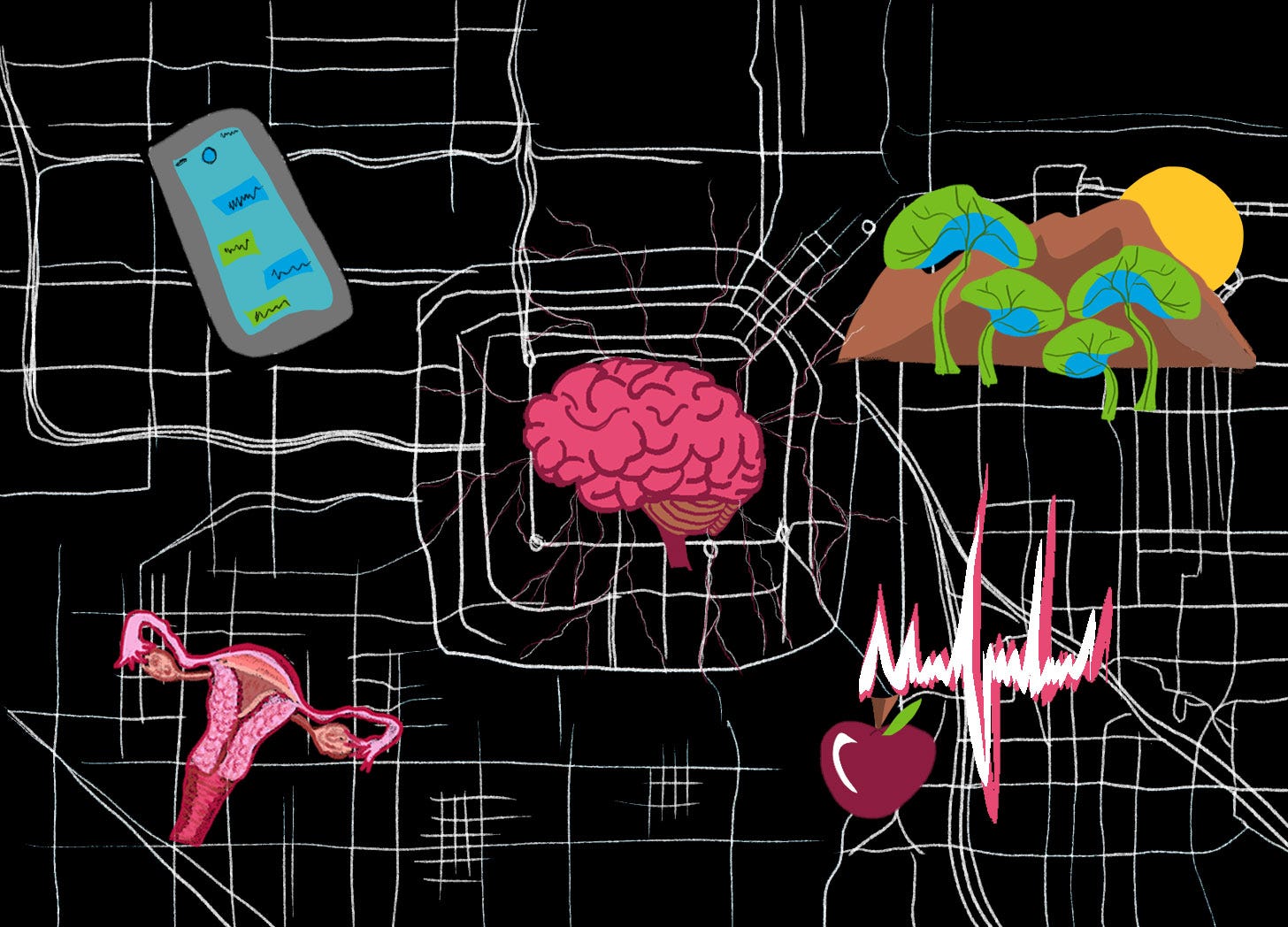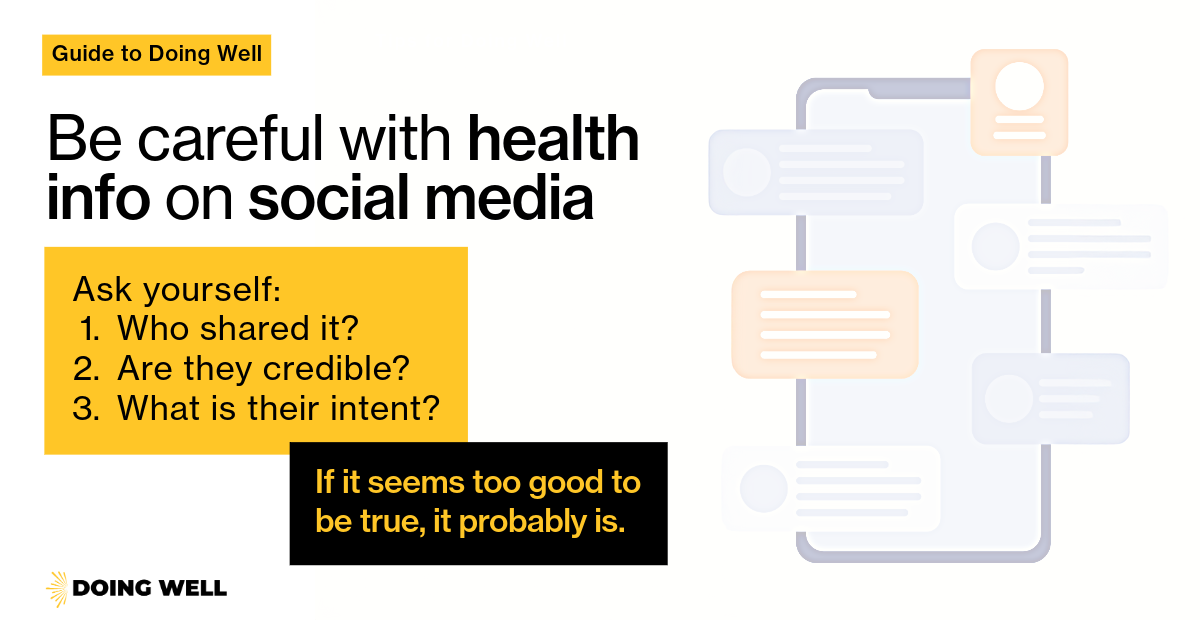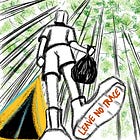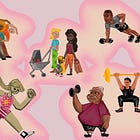Our guide to Doing Well
At Doing Well, our goal is to give you tools to understand and improve your health.
The experts we interview share advice on how to communicate with your doctors, how to sort through online health information, how to implement healthy habits in your routine—and just about everything in between.
We’ve compiled their advice into an easy-to-reference list, which we’ll continue to update with tips from future interviews. We hope it’s useful as a back-pocket guide for good health.
Find tips on:
Communicating with health care providers
When dealing with a health condition, keep a log of your symptoms and how they have impacted your life. Bring that log to your next medical appointment, and show it to your health care provider.
From our introductory interview with Doing Well editors Mia Armstrong-López and Natasha Burrell
Take notes or ask to record audio at health care appointments. Don’t be afraid to bring along someone you trust who can act as a second set of eyes and ears.
From our introductory interview with Doing Well editors Mia Armstrong-López and Natasha Burrell
Bring an advocate to health care appointments; ideally someone who knows you well. Before your appointment, discuss your priorities with that person, and ask them to serve as another voice to share those priorities with your health care provider.
From our interview on C-sections and maternal health with Rachel Somerstein, author of Invisible Labor: The Untold Story of the Cesarean Section
After a diagnosis, ask your provider:
How confident are you in this diagnosis?
What are the options for treatment?
Is there anything unique about my diagnosis?
What are the core risks of no treatment, and what are the risks of the treatments you’re recommending?
From our interview on diagnostics with Mara Aspinall, an expert in biomedical diagnostics and professor at ASU’s College of Health Solutions
Evaluating health information and protecting your personal data
Be critical of health information shared on social media: Who shared it? Is that person or organization credible? What is the intent behind their sharing? Remember, if something seems too good to be true, it probably is.
From our interview on health information with Kristy Roschke, an expert in media literacy
Before downloading a health-related app, check to ensure your data will be protected. Do a Google search to see if there have been privacy or security issues with the app. You also can look at company privacy policies. Search for the word “sell” to see if the company is planning on selling your data, and check if you have the rights to have your data deleted.
From our interview on data sharing in mental health apps with Jen Caltrider, a privacy researcher
Navigating reproductive and sexual health
If you’re pregnant, think about what’s important to you in the birthing process—for example, skin-to-skin contact with your newborn, or having family members close. Explore ways those priorities can be honored, regardless of how labor goes.
From our interview on C-sections and maternal health with Rachel Somerstein, author of Invisible Labor: The Untold Story of the Cesarean Section
Sexual health is an important part of health, but sometimes it’s hard to talk about. If you have an OB/GYN, you can start the conversation by saying: “Can you ask me about my sex life?”
From our interview on women’s sexual health with Jewel Kling, Sara Collina, and Lindy Elkins-Tanton, based on their article on women’s sexual health for Issues in Science and Technology
If you’re going through a major surgery like a hysterectomy, don’t be afraid to communicate your concerns about what sex will look like for you after the surgery. If your medical team can’t give you answers, you can ask “Is there an expert in women's health you can refer me to?”
From our interview on women’s sexual health with Jewel Kling, Sara Collina, and Lindy Elkins-Tanton, based on their article on women’s sexual health for Issues in Science and Technology
If you’re going through the menopause transition, keep a list of your symptoms and when they started. You can then rank your symptoms by most to least irritating. Bring this list with you to your doctor’s appointment to help set the priorities for your care.
From our interview on menopause with Dr. Nanette Santoro—a professor at the University of Colorado School of Medicine and one of the leading experts on menopause and hormone therapy
Look for menopause treatments that are FDA-approved. If you’re trying to evaluate a study on a menopause treatment, make sure it was tested in a group of 100 to 200 people, and that the study included a placebo group. Beware of people selling magical cures, and click on the links in marketing materials to make sure they actually say what the marketers say they do.
From our interview on menopause with Dr. Nanette Santoro—a professor at the University of Colorado School of Medicine and one of the leading experts on menopause and hormone therapy
If you're not getting appropriate care in response to your menopause symptoms, ask for a referral or find a different provider. You can look for a menopause-certified practitioner and find more resources from the Menopause Society.
From our interview on menopause with Dr. Nanette Santoro—a professor at the University of Colorado School of Medicine and one of the leading experts on menopause and hormone therapy
Seeking health outdoors
Small changes in your habits can help reduce air pollution in your community. For example:
Work from home, carpool, or take public transportation when you can.
If you need to fill up your car with gas, try doing so after the sun has gone down.
Turn off your car while waiting to pick up your kids, rather than idling. Walk into the coffee shop rather than waiting in the drive-through line.
From our interview on air quality with Ari Halpert, a communications department officer at the Maricopa County Air Quality Department
When spending time outdoors, practice the principles of Leave No Trace:
Plan ahead and prepare
Travel and camp on durable surfaces
Dispose of waste properly
Leave what you find
Minimize campfire impacts
Respect wildlife
Be considerate of others
From our interview on the benefits of getting outdoors with JD Tanner, director of education and training at Leave No Trace
When educating someone else about best practices in the outdoors, try to keep shame out of the conversation. Assume they have positive intentions. Be forward about the impact of behaviors that can harm the environment.
From our interview on the benefits of getting outdoors with JD Tanner, director of education and training at Leave No Trace
Dealing with the costs of health care
Keep records of the medical services you have received, when they happened, and how much they cost, with and without insurance benefits. You can organize this into a health ledger, which will track your health spending over time. (This can be useful for insurance, budgeting, and tax purposes.)
From our interview on health care and money with Carolyn McClanahan, a financial advisor and physician
If your health care provider orders a test, ask: “How is this test going to change how you treat me?” and advocate for the most cost-effective option. Make sure that testing is done within your insurance network if you’re insured. If you are prescribed an expensive medication, ask your provider: “Is there a generic or a substitution?”
From our interview on health care and money with Carolyn McClanahan, a financial advisor and physician
Improving mental and cognitive (brain) health
When you feel stressed, try a strategy called “reappraisal.” For example, if someone is rude to you, it can cause a negative emotional response. When you feel that emotion coming, take a step back and try to reinterpret the situation: Maybe they just had something really bad happen in their life. Reinterpreting the situation can help reduce its negative emotional impact.
You can also practice mindfulness. When you feel a stressor sneak up on you, take a moment and try to identify its cause. Where do you feel it in your body? Take some breaths and see if you can relax that part of your body, creating a space between the stressor and yourself.
From our interview on brain health with Yi-Yuan Tang, a neuroscience professor in ASU’s College of Health Solutions.
Building healthy habits
When it comes to exercise and nutrition, focus on sustainable habits. Eat and move in ways that make your body feel strong.
From our interview on nutrition and metabolism with Robin DeWeese, a registered dietitian nutritionist and professor in ASU’s College of Health Solutions
Familiarize yourself with the cancer screening recommendations based on your age and risk level. Use online tools like this one from the American Cancer Society to get personalized guidance.
Follow evidence-backed recommendations to reduce your cancer risk: get recommended screenings, vaccinate against HPV and hepatitis B, try to reduce processed foods in your diet, get regular exercise, and avoid smoking.
From our interview on cancer with Dr. Joshua LaBaer, executive director of ASU’s Biodesign Institute















